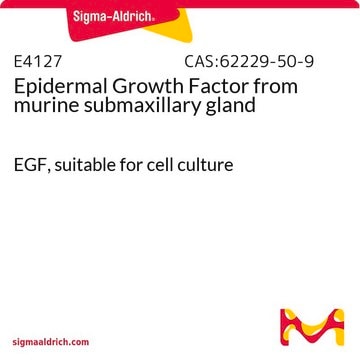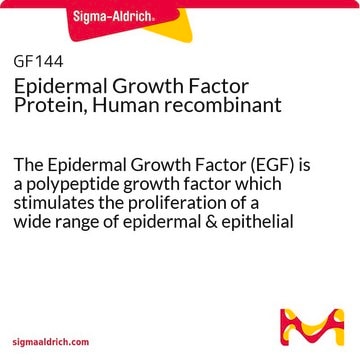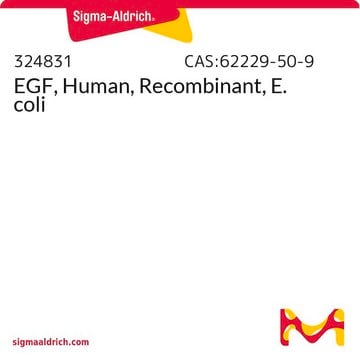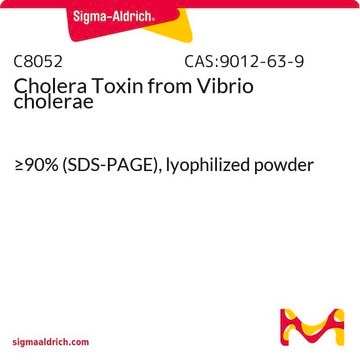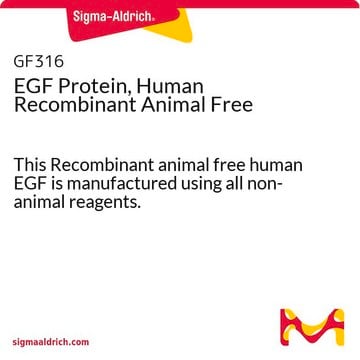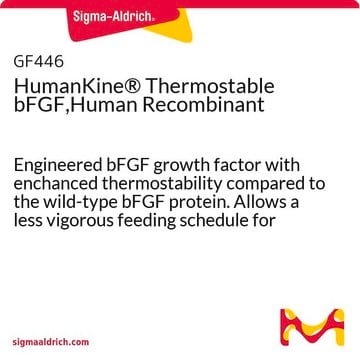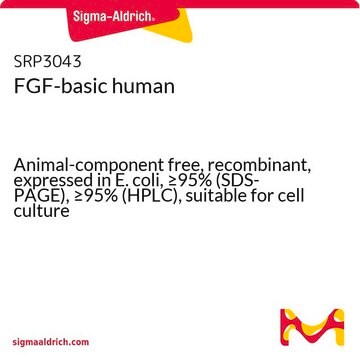SRP3027
EGF human
Animal-component free, recombinant, expressed in E. coli, ≥98% (SDS-PAGE), ≥98% (HPLC), suitable for cell culture
Synonym(s):
Epidermal Growth Factor, URG, Urogastrone
About This Item
Recommended Products
biological source
human
recombinant
expressed in E. coli
Assay
≥98% (HPLC)
≥98% (SDS-PAGE)
form
lyophilized
potency
≤0.2 ng/mL
mol wt
6.2 kDa
packaging
pkg of 500 μg
technique(s)
cell culture | mammalian: suitable
impurities
<0.1 EU/μg endotoxin, tested
color
white to off-white
UniProt accession no.
shipped in
wet ice
storage temp.
−20°C
Gene Information
human ... EGF(1950)
General description
Application
Biochem/physiol Actions
Sequence
Physical form
Reconstitution
Storage Class Code
11 - Combustible Solids
WGK
WGK 3
Flash Point(F)
Not applicable
Flash Point(C)
Not applicable
Certificates of Analysis (COA)
Search for Certificates of Analysis (COA) by entering the products Lot/Batch Number. Lot and Batch Numbers can be found on a product’s label following the words ‘Lot’ or ‘Batch’.
Already Own This Product?
Find documentation for the products that you have recently purchased in the Document Library.
Customers Also Viewed
Articles
Discover answers to your frequently asked questions about animal component-free, xenobiotic-free, and chemically defined media and reagents for cell culture.
Discover answers to your frequently asked questions about animal component-free, xenobiotic-free, and chemically defined media and reagents for cell culture.
Discover answers to your frequently asked questions about animal component-free, xenobiotic-free, and chemically defined media and reagents for cell culture.
Discover answers to your frequently asked questions about animal component-free, xenobiotic-free, and chemically defined media and reagents for cell culture.
Our team of scientists has experience in all areas of research including Life Science, Material Science, Chemical Synthesis, Chromatography, Analytical and many others.
Contact Technical Service
